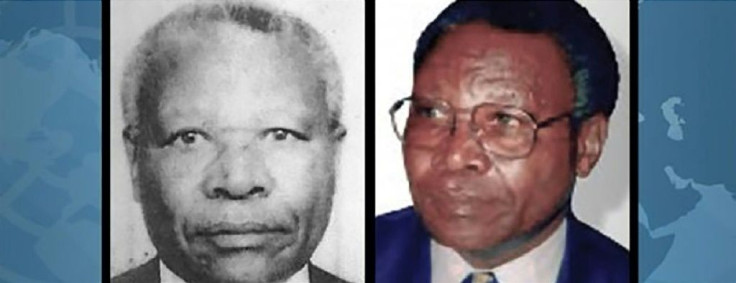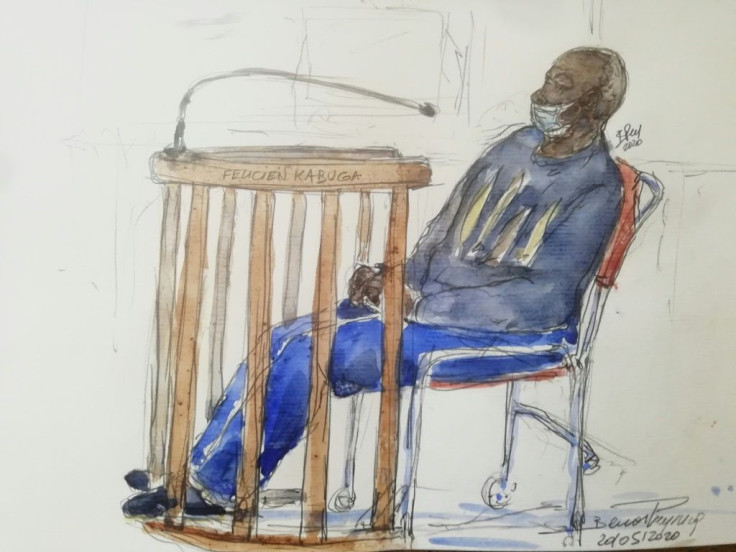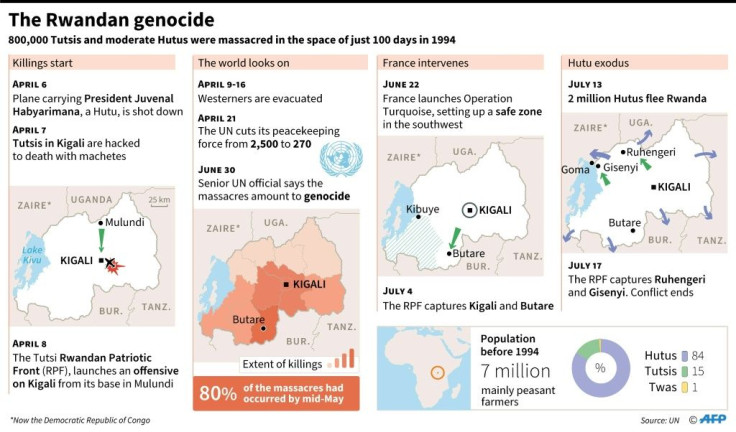France Approves Rwanda Genocide Suspect's Transfer To UN Tribunal
France's top appeals court ruled Wednesday that alleged Rwandan genocide financier Felicien Kabuga be transferred to a UN tribunal in Tanzania to stand trial on charges of genocide and crimes against humanity.
Kabuga, arrested near Paris in May after 25 years on the run, had asked to be tried in France, not Arusha.
But judges at the Court of Cassation ruled there was no legal or medical obstacle to executing an international warrant for Kabuga's transfer to UN custody.

The octogenarian will be put on trial over his alleged role in the 1994 Rwanda genocide by Hutu extremists of some 800,000 minority Tutsis as well as moderate Hutus.
Once one of Rwanda's richest men, Kabuga is accused of having helped create the Interahamwe Hutu militia group and the Radio-Television Libre des Mille Collines, whose broadcasts incited people to murder, and of helping to buy machetes in 1993 that were distributed to genocidal groups.
In June, a French court ruled Kabuga should stand trial at the Mechanism for International Criminal Tribunals (MICT) in Tanzania, which took over the duties of the UN's International Criminal Tribunal for Rwanda (ICTR) when it formally closed in 2015.

Kabuga's lawyers appealed that decision, citing what they said was his frail health and fears the UN tribunal would be biased.
But the Cour de Cassation, France's highest appeals court for criminal cases, disagreed Wednesday, meaning France will have a month to hand Kabuga, who says he is 87, over to the MICT.
France has already extradited other Rwanda genocide suspects to the Tanzania tribunal in recent years.

Kabuga's lawyer Emmanuel Altit told AFP after Wednesday's ruling that the defence team would ask the MICT that Kabuga be transferred to The Hague rather than Arusha, "because in The Hague his rights will be better protected."
During the hearing before the Cour de Cassation, another Kabuga lawyer, Louis Bore, claimed his client would not receive proper medical treatment in Tanzania for conditions including diabetes, high blood pressure and leukoaraiosis -- an incurable illness that erodes physical and cognitive abilities.
Kabuga was indicted by the ICTR in 1997 on seven counts, all of which he denies.
"We expected this outcome," Jean-Pierre Dusingizemungu, president of the IBUKA genocide survivors' body told AFP of Wednesday's ruling, welcoming a "service towards justice".
"If this was not the outcome we would have been very disappointed in the French justice system."
Rwanda has said it wants to see Kabuga tried by its own courts.
However, transferring jurisdiction from the MICT would require a decision from the UN Security Council, according to MICT prosecutor Serge Brammertz.
Rwanda itself carried out 22 executions of people convicted for their role in the conflict before abolishing the death penalty in 2007, a move that facilitated the extradition of suspects from other countries to its jurisdiction.
Between 2005 and 2012, some 12,000 popular tribunals know as "gacaca" tried close to two million people, convicting two-thirds of them.
European courts, notably in Belgium and France, have also tried and sentenced Rwandan genocide suspects.
© Copyright AFP {{Year}}. All rights reserved.





















